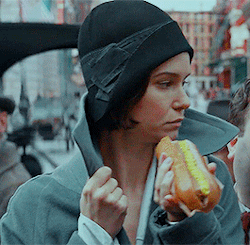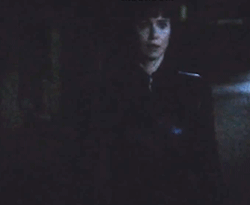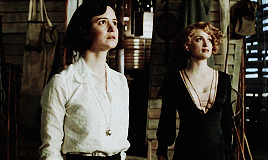Tina Goldstein, What’s Missing?
Both Fantastic Beasts films have reinvigorated the relevance of the Potter fandom for the next generation. The new ensemble of characters instantly gained my affection and filled the empty Potter cavern that had been threatening to engulf me since the release of the eighth Potter film. Newt Scamander embodies a charming social awkwardness that many of us are all too familiar with; Jacob Kawalski pulls at our funny bones and heartstrings; Queenie Goldstein intrigues us with her charisma and now-intricate storyline; and Tina Goldstein… Well, she indeed was quirky that one time she left mustard on her upper lip after consuming a hot dog. (And man, it looked like a tasty amalgamation of meat in a bun.)
Going into Fantastic Beasts and Where To Find Them, there was no pretense about the relationship between Newt and Tina. We knew that they were destined to be husband and wife. Their romance was not a surprising occurrence, and yet it seemed like something was missing in Tina’s character that left me wanting more. Tina’s drive to get ahead motivated her to immediately sell out Newt despite their positive interactions and hot cocoa. She seemed incredibly selfish in the first half of the film, and her personality was sometimes bland. Compared to her sister, Queenie, we only saw small flashes of individuality. Her compassion for Credence was a quality that I wish were more apparent, and her shy love for Newt suddenly appeared at the end.
In Fantastic Beasts: The Crimes of Grindelwald, I was again left dissatisfied with Tina’s role in the story. Tina’s personality started to blossom, but she was not given the time she needed to truly shine. Her interactions with Newt were endearing. I could see the spark of a Magizoologist’s wife in her brazened jingling of the zouwu’s toy. Her comfortability with a massive, fantastic beast helped me visualize their future after the war, hunting down creatures and caring for them with compassion. I adored the scene where Newt was desperately trying to tell Tina that her eyes were like a salamander’s (despite Jacob’s warning), and Tina was able to fill in the gaps. Has Tina always had an interest in creatures or had she only read up on the dazzling quality of salamander eyes due to Newt’s influence? Either way, she showcased respect and interest in her future husband’s mission in life.
However, despite the growth of the chemistry between Newt and Tina, Tina’s relationship with her sister was – in my opinion – neglected in Crimes of Grindelwald. Perhaps Tina’s absence was instrumental in Queenie’s susceptibility to Grindelwald’s sweet-talking ways. Would Queenie have turned so easily if Tina, the moral rock in the sisterly relationship, were there supporting her? One gets a sense that Tina has been a parental figure in Queenie’s life. Prior to Crimes of Grindelwald, had they even lived apart before? Was Tina responsible for keeping Queenie’s telepathic-induced anxiety in check all these years? Was Tina irresponsible for chasing Credence when she knew her sister suffered from her gift? After all, Tina thought Jacob and Queenie had split. Did she leave her sister seemingly alone and heartbroken?
I want to love Tina. I want to defend her as a strong woman and argue with those who are critical of her presence in the story, but despite her character making strides toward autonomy, I am still left hungry for more. The end of Crimes of Grindelwald is missing a pivotal moment: Tina’s reaction to Queenie’s betrayal. The film spends an inordinate amount of time on Leta Lestrange, a fleeting character whose roll in the story was seemingly meaningless in the grand scheme of things. Maybe J.K. Rowling will reprise Leta’s relevance, but that is beside the point. After the emotional scene between Jacob and Queenie, there was no time devoted to a gut-wrenching reaction due to the betrayal of a sister. Tina and Queenie are the main characters of the franchise; why isn’t their relationship given priority? I needed a shot showing Tina’s devastation, maybe a fight toward the action trying to save her sister, anything to highlight their connection. If the story were told in a traditional novel format, that detail would not be missed. The lack of a reaction from the most important person in Queenie’s life left me wanting more from Tina. Her screen time is still limited to a person who drives the plot forward through investigation and being an Auror instead of a complex character whose humanity relates to the audience.
I hope that Tina is given a wider emotional scope in the upcoming films. If her character is given the proper time, we should see her grieve for Queenie and suffer from guilt. Maybe she will feel guilty for not being there for Queenie during a tumultuous time of battling wizarding prejudice. Whatever lies in store for Tina and Queenie, I hope that J.K. Rowling explores that bond of sisterhood they share instead of glossing over it due to multiple characters and the grand theme of war.






